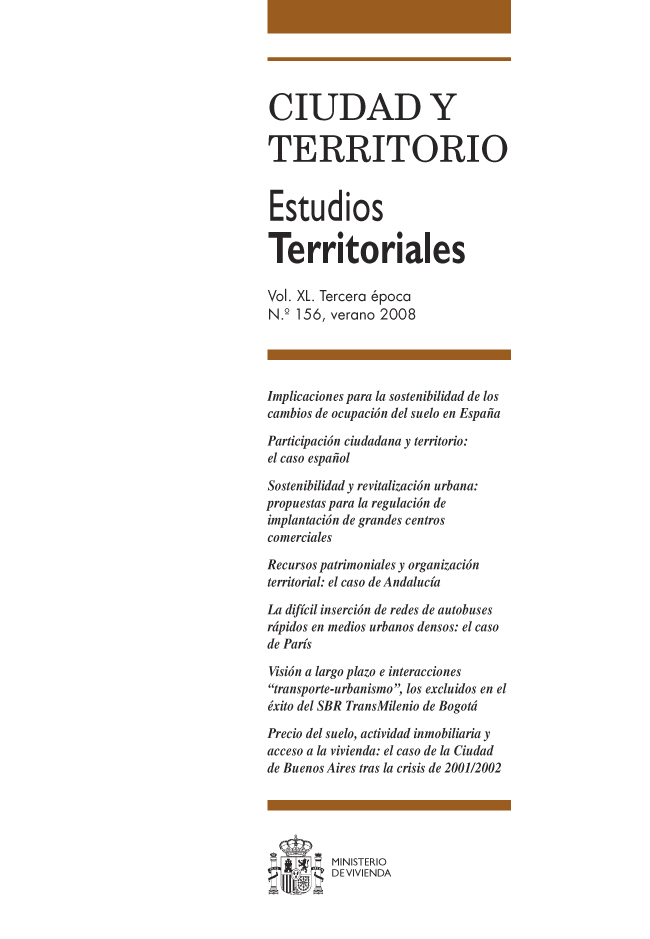Sustainability and Urban Reawakening: Some New Proposals for Controlling the Setting up of Major Commercial Entities
Keywords:
Desarrollo sostenible, grandes superficies, planificación territorial, renovación urbana, urbanismoAbstract
This article analyses the impact of shopping malls from the perspective of sustainable development. The
social, environmental and urban effects of large-scale retail developments justify public intervention to the
end of correcting or at least minimising their negative impact. Retail planning in Spain has been based on
economic or market reasoning more than upon arguments as to the public weal such as the protecting of
the environment or the dictates of town and country planning sense. As a result of this, a stifling
interventionism has come into being which, though unable to palliate the consequences of shopping malls,
has yet hindered free competition by favouring established operators on the market and protecting them
against potential competitors. This article tries to outline a new sort of policy guidelines on Retail Planning
(some of them inspired by present British practice) these based upon «overriding reasons relating to the
public interest», such as the protection of both the natural environment and the urban environment as such.
In keeping with the new Directive on Services, these criteria or conditions set out by the Member States are
to ensure that the common weal may indeed justify the application of authorisation schemes and other
restrictions. However, access to a service activity in the territory of a Member State is not to become subject
to meeting any prior economic clean bill of health.
Downloads
Downloads
Published
How to Cite
Issue
Section
License
Copyright (c) 2008 Helena Villarejo Galende

This work is licensed under a Creative Commons Attribution-NonCommercial-NoDerivatives 4.0 International License.
Considering the provisions of the current legislation on Intellectual Property, and in accordance with them, all authors publishing in CyTET give -in a non-exclusive way and without time limit- to the Ministry of Transport, Mobility and Urban Agenda the rights to disseminate, reproduce, communicate and distribute in any current or future format, on paper or electronic, the original or derived version of their work under a Creative Commons Attribution-NonCommercial-NoDerivative 4.0 license International (CC BY-NC-ND 4.0), as well as to include or assign to third parties the inclusion of its content in national and international indexes, repositories and databases, with reference and recognition in any case of its authorship.
In addition, when sending the work, the author(s) declares that it is an original work in which the sources that have been used are recognized, committing to respect the scientific evidence, to no longer modify the original data and to verify or refute its hypothesis. Author(s) also declare that the essential content of the work has not been previously published nor will it be published in any other publication while it is under evaluation by CyTET; and that it has not been simultaneously sent to another journal.
Authors must sign a Transfer of Rights Form, which will be sent to them from the CyTET Secretariat once the article is accepted for publication.
With the aim of promoting the dissemination of knowledge, CyTET joins the Open Journal Access (OA) movement and delivers all of its content to various national and international indexes, repositories and databases under this protocol; therefore, the submission of a work to be published in the journal presupposes the explicit acceptance by the author of this distribution method.
Authors are encouraged to reproduce and host their work published in CyTET in institutional repositories, web pages, etc. with the intention of contributing to the improvement of the transfer of knowledge and the citation of said works.








 Enlace a CyTET en Linkedin
Enlace a CyTET en Linkedin